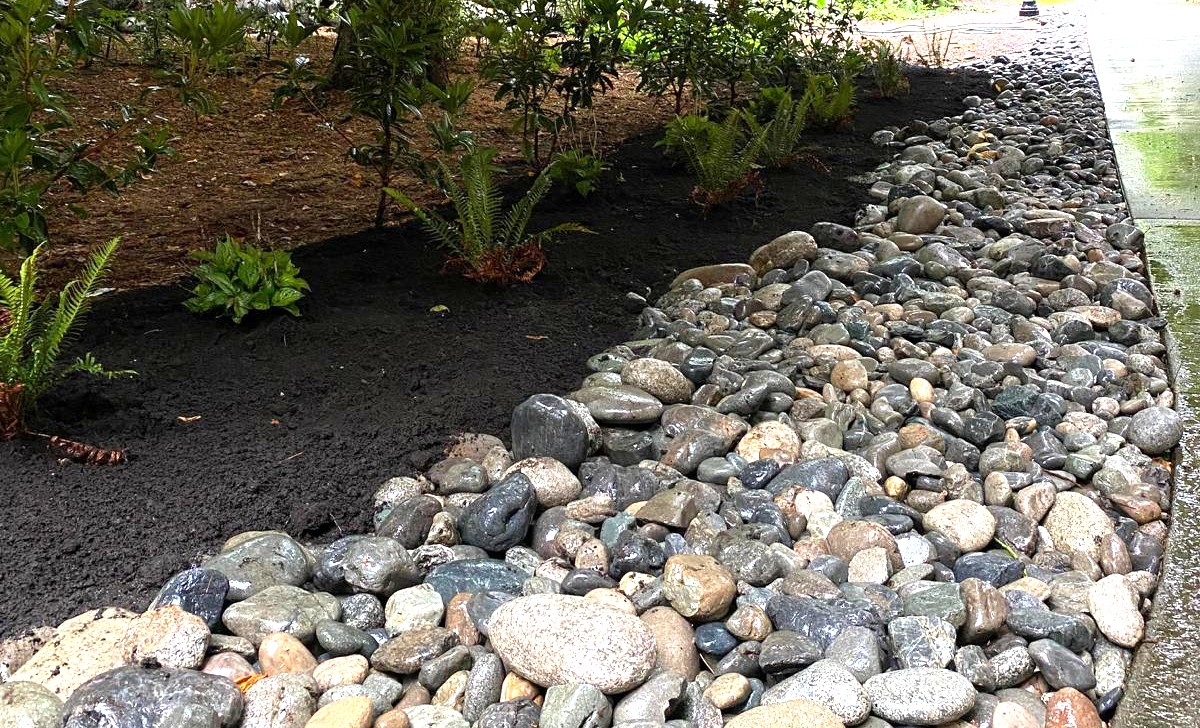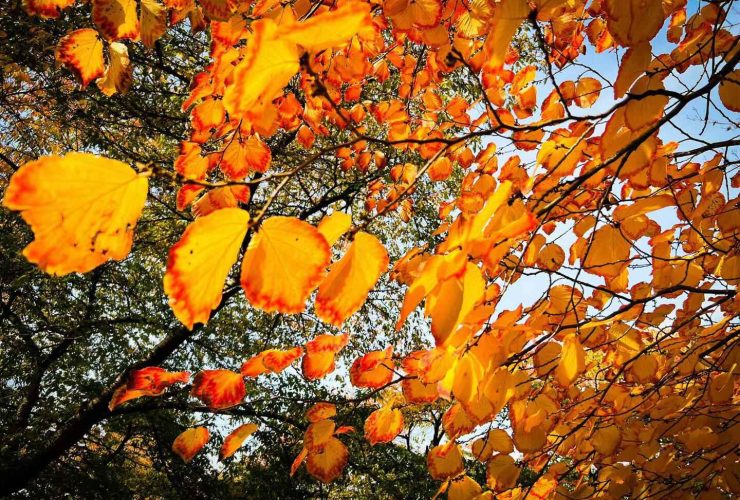For property and facility managers, the choice of mulch vs. river rock for strata and commercial landscaping in BC goes far beyond aesthetics. This decision directly impacts budgets, maintenance schedules, and long-term property value.
While most people know the basic differences between mulch vs river rock, this article focuses on how property and facility managers in Metro Vancouver and the Lower Mainland can make the right choice. Factors like long-term maintenance costs, management efficiency, site conditions such as slopes or sun exposure, and overall plant health all play a role in deciding whether mulch or river rock is the better fit.
Costs & Maintenance: Finding the Right Balance in BC Landscaping
Every landscaping choice has a lifecycle cost, and the best option depends on the unique conditions of each property—there’s no one-size-fits-all solution.
Bark Mulch
- Low upfront cost, ideal for large, open planting beds.
- Needs replenishment every 1–3 years as it decomposes and fades.
- Predictable recurring expense that supports soil health but requires ongoing labour.
River Rock
- Higher initial cost due to material and installation.
- Extremely durable, rarely needs replacement.
- Best for small, high-visibility areas where permanence outweighs upfront expense.
Where Mulch or River Rock Works Best in BC Landscaping
| Scenario | Recommended Material | Why |
| Wide ornamental beds | Bark Mulch | Supports plant health, more economical for large areas. |
| Parking lot or driveway bed edges | River Rock | Durable under foot and vehicle traffic, maintains a clean appearance. |
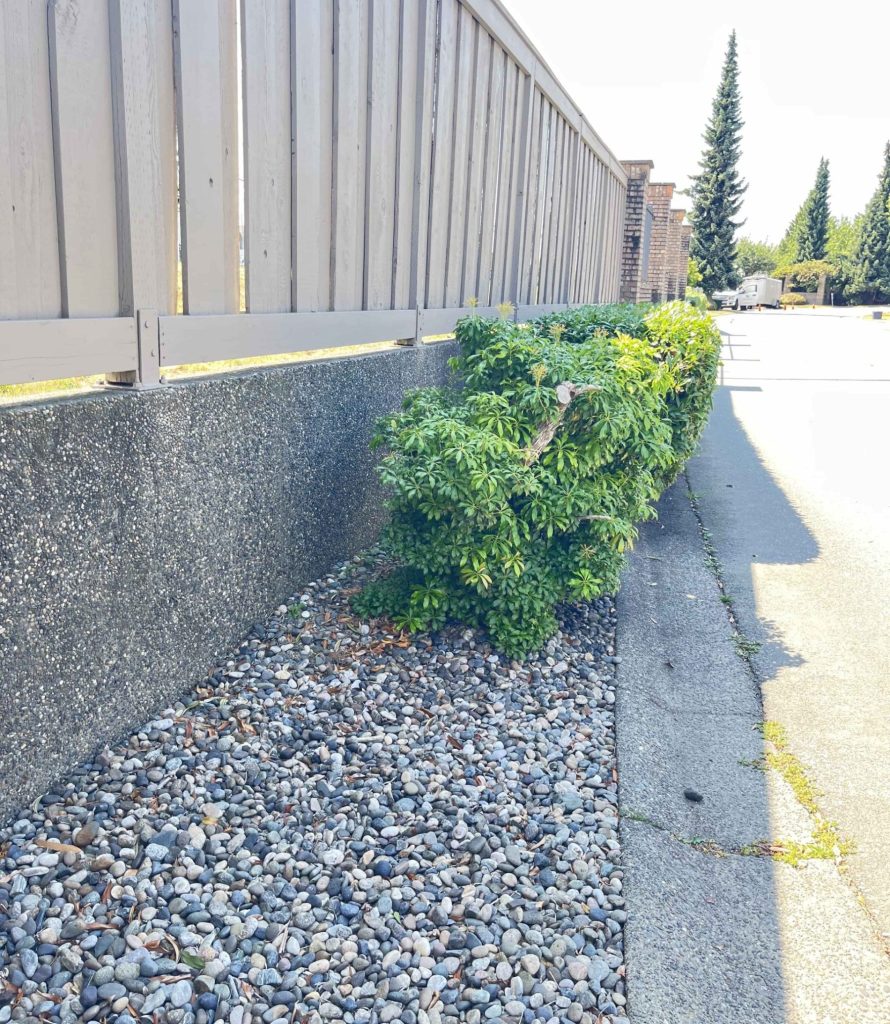
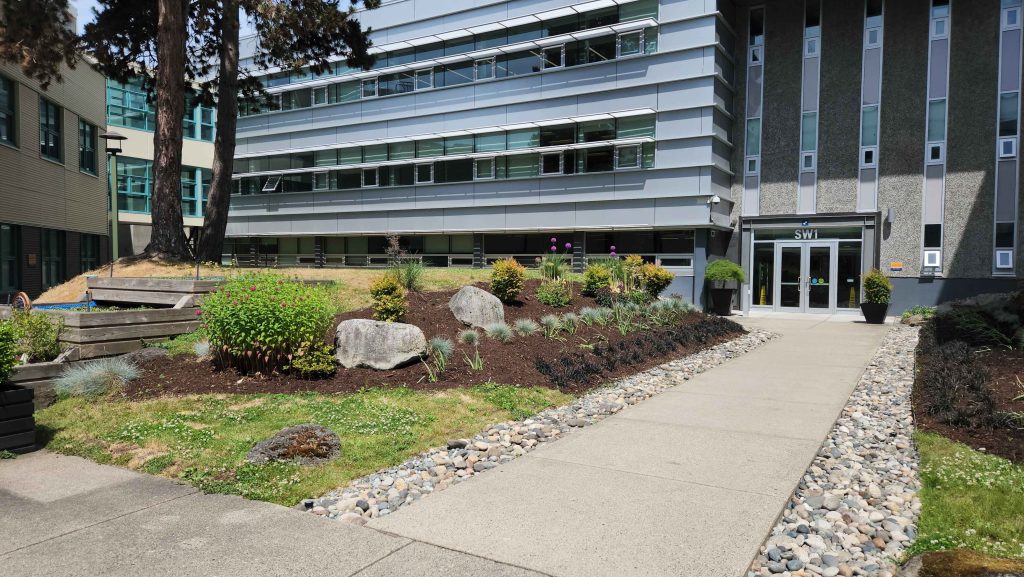
Time & Flexibility: Managing Strata & Commercial Landscapes Efficiently
In commercial and strata landscaping, time is money. Choosing the right ground cover can significantly reduce how often landscapers need to return for maintenance.
Bark Mulch
- Flexible to move, replace, or refresh as plants mature or designs change.
- Suppresses weeds initially and enriches the soil as it decomposes, increasing nitrogen levels for healthier plants.
- Requires periodic upkeep as it breaks down, meaning more frequent maintenance visits.
River Rock
- Excellent weed suppression when installed with landscape fabric.
- Minimal upkeep once installed.
- Less flexible—replanting or redesigning requires more labour.
Case Example: Telus Garden Rooftop Planters
At Telus Garden’s 49th & 50th floor rooftops, the edge planters were originally filled with shrubs that required costly, high-risk maintenance with fall protection.
Our team replaced the plants with landscape fabric and river rock, creating a clean, durable, and low-maintenance solution—perfect for hard-to-access high-rise landscapes.
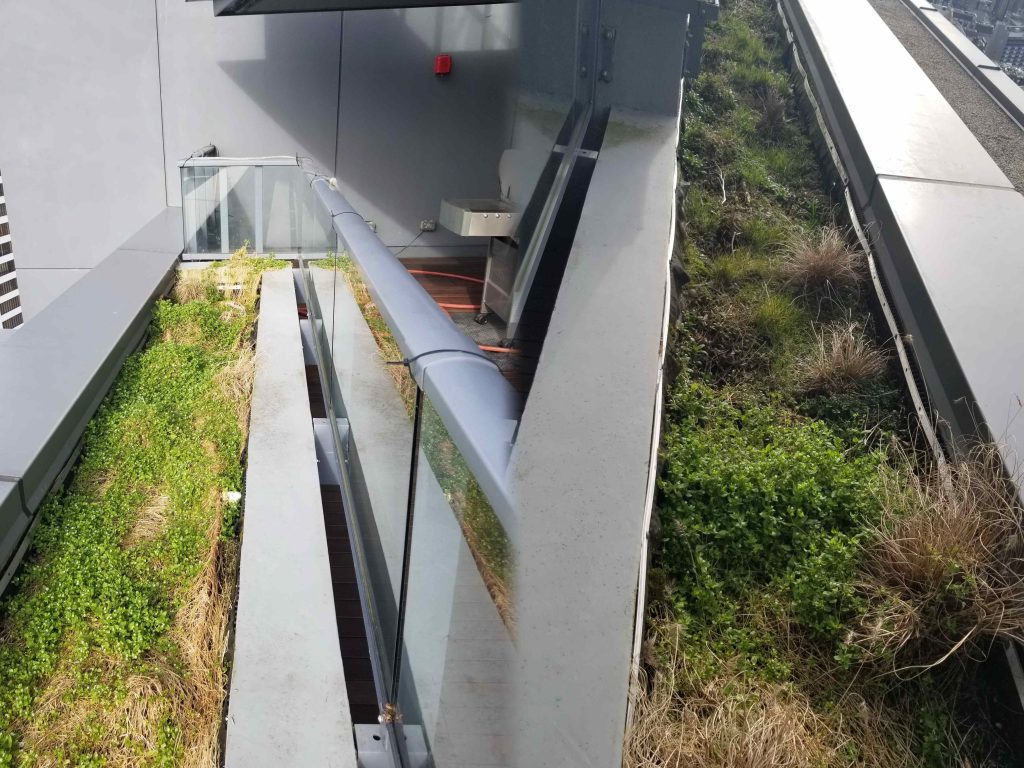
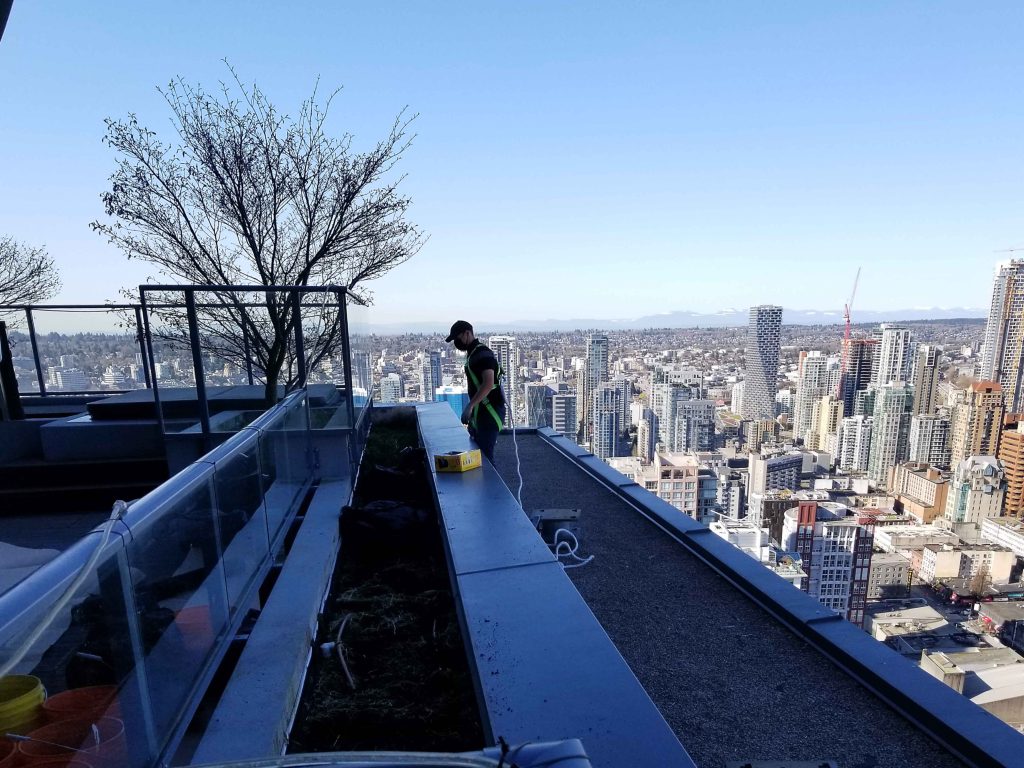
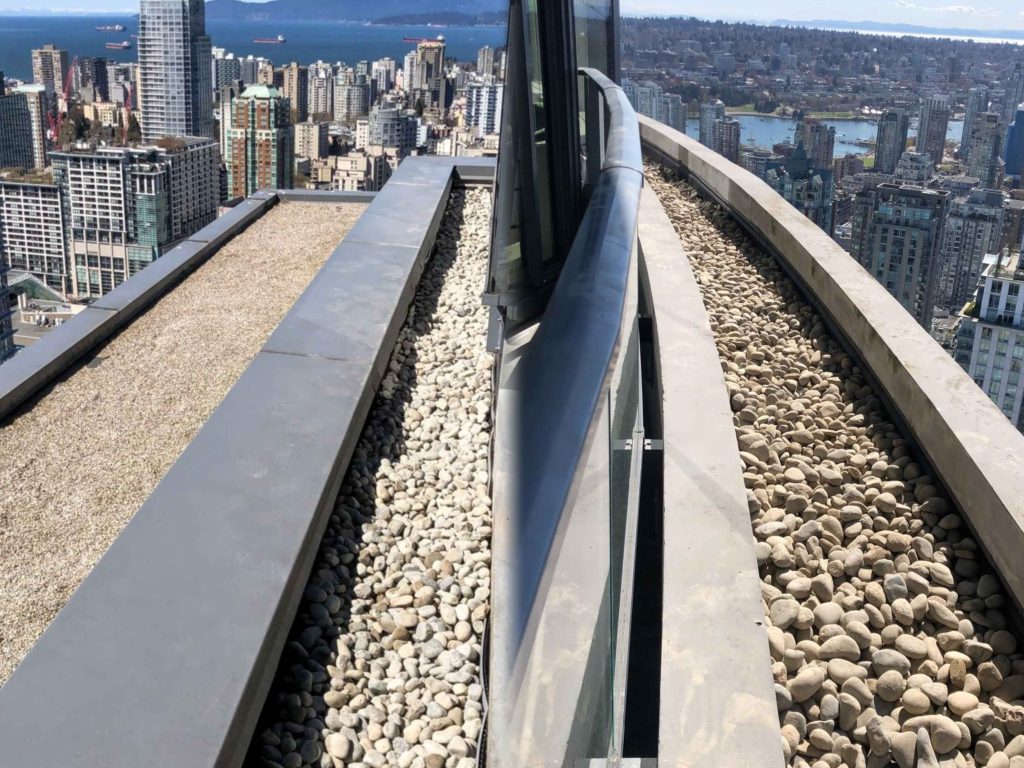
Where Mulch or River Rock Works Best in BC Landscaping
| Scenario | Recommended Material | Why |
| Rooftop patios, edge planters, or high-rise landscapes | River Rock | Long-term stability, low maintenance, and weed control in hard-to-access areas. |
| High-turnover planting areas | Bark Mulch | Easier to adjust and replace when shrubs, perennials, or seasonal plants change. |
Site-Specific Risks in BC Landscaping
Drainage & Erosion
Both bark mulch and river rock help manage water flow, but each performs differently:
- Bark mulch binds together when wet, making it less likely to wash away, especially on slopes or in heavy rainfall areas.
- River rock allows for more efficient water drainage but is less useful on steep slopes
On steep or erosion-prone areas, a hybrid solution often works best: bark mulch around trees and plant groupings to protect soil, with river rock on exposed edges for stability and aesthetic appeal.
Sun Exposure
- Bark mulch is ideal for full-sun beds, keeping soil cool and retaining moisture to protect plant roots.
- River rock can absorb and radiate heat, which may damage plants in hot, exposed areas.
Where Mulch or River Rock Works Best in BC Landscaping
| Scenario | Recommended Material | Why |
| Moderate slope with trees | Bark Mulch | Protects soil and roots while supporting plant growth. |
| Steep embankment or drainage-prone area | River Rock + Bark Mulch | Combines slope stability with soil protection and visual appeal. |
| Full-sun ornamental beds | Bark Mulch | Maintains soil moisture and prevents root stress. |
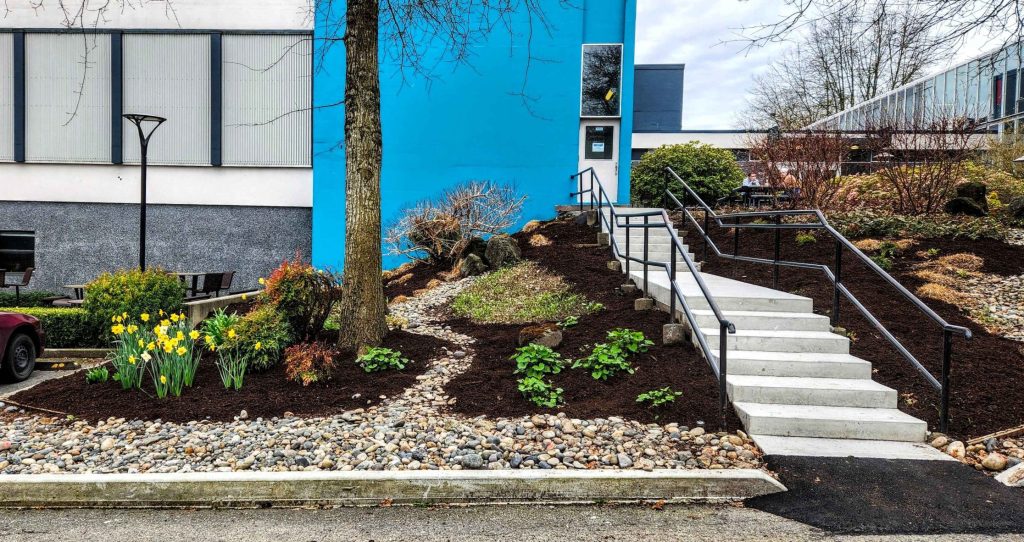
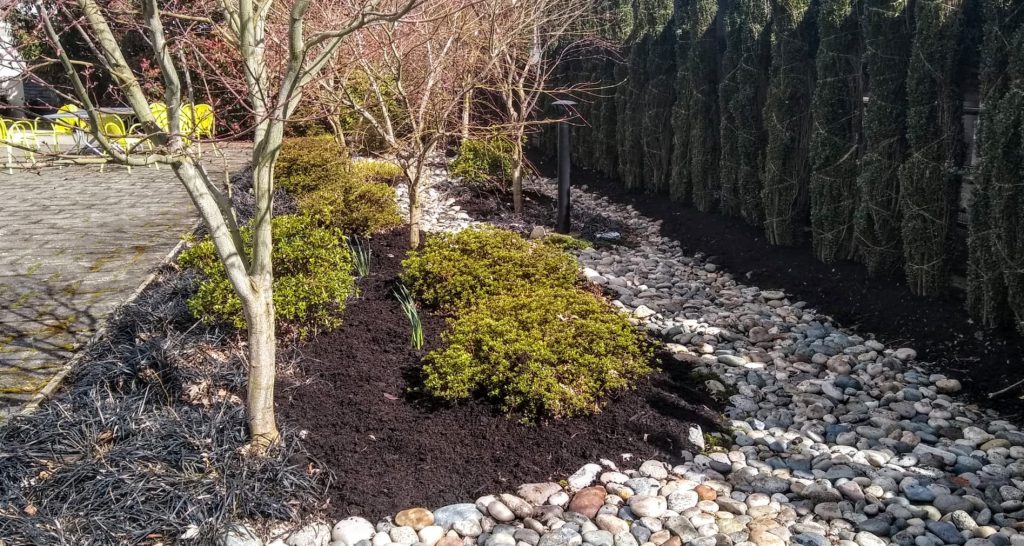
The Hybrid Approach: Best of Both Worlds
The most cost-effective and practical solution for commercial landscaping in BC is often to combine both bark mulch and river rock strategically.
- River rock works best in high-traffic or hard-to-reach areas, such as parking lot edges, building entrances, rooftop planters, or drainage zones where stability and low maintenance are priorities.
- Bark mulch is ideal for wide ornamental beds, full-sun planting areas, and zones that require flexibility for seasonal or frequent plant changes, where soil health and plant vitality matter most.
This hybrid strategy delivers the right balance of durability, drainage, erosion control, plant health, and long-term cost efficiency—tailored to the unique landscaping conditions of Metro Vancouver and Lower Mainland.
Looking for more long-term landscaping solutions? Read more: Allan Block vs Timber Retaining Walls: Which is Right for Your Property? – Premier Landscaping Inc.
Need expert guidance on where mulch vs river rock makes the most sense for your property?
Our team can design a customized ground cover strategy that protects your budget while enhancing curb appeal.


